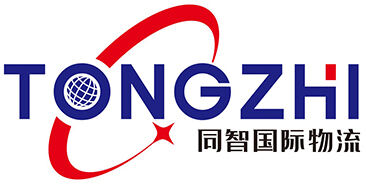 ×
×
In today's interconnected world, international logistics management stands as a cornerstone of global trade and commerce. As businesses expand their reach across borders, the complexities of managing supply chains, navigating regulatory frameworks, and optimizing transportation networks become increasingly pronounced. In this article, we embark on a comprehensive exploration of the multifaceted dimensions of international logistics management, shedding light on its critical components and the strategies employed to ensure seamless operations in a dynamic global marketplace.
At the heart of international logistics management lies the optimization of supply chains. From raw material sourcing to final product delivery, businesses must orchestrate a symphony of interconnected processes to ensure efficiency and cost-effectiveness. Supply chain optimization involves the strategic alignment of production, inventory, and distribution channels to minimize lead times, reduce inventory holding costs, and enhance overall operational performance.
Key strategies in supply chain optimization include:
By adopting these strategies, businesses can achieve greater agility and resilience in their supply chains, enabling them to respond effectively to shifting market demands and emerging competitive pressures.
In the realm of international logistics, visibility and transparency are paramount. With goods traversing multiple borders and passing through various intermediaries, maintaining real-time visibility into shipment status and location is essential for mitigating risks and ensuring timely delivery. Cargo tracking solutions leverage advanced technologies such as GPS, RFID, and IoT sensors to provide stakeholders with actionable insights into the movement of goods throughout the supply chain.
Benefits of cargo tracking and visibility include:
By harnessing the power of cargo tracking and visibility technologies, businesses can enhance operational efficiency, minimize supply chain disruptions, and differentiate themselves in an increasingly competitive marketplace.
In the dynamic landscape of international trade, flexibility in transportation solutions is critical for meeting diverse customer needs and navigating evolving market conditions. From ocean freight and air cargo to road and rail transport, businesses must evaluate the trade-offs between cost, speed, reliability, and sustainability when selecting the optimal mode of transportation for their shipments.
Key considerations in transportation mode selection include:
By adopting a multimodal transportation strategy and leveraging the strengths of different modes, businesses can achieve greater flexibility, resilience, and efficiency in their international logistics operations.
Looking ahead, technology-driven innovations are poised to revolutionize the landscape of international logistics management. From blockchain and artificial intelligence to autonomous vehicles and drone delivery, emerging technologies hold the promise of enhancing visibility, transparency, and efficiency across the entire supply chain.
Key trends in technology-driven innovations include:
By embracing these technological innovations, businesses can gain a competitive edge in the global marketplace, driving innovation, efficiency, and sustainability in their international logistics operations.
In conclusion, international logistics management encompasses a myriad of dimensions, from supply chain optimization and cargo tracking to transportation flexibility and technological innovation. By understanding and effectively managing these dimensions, businesses can navigate the complexities of global trade and unlock new opportunities for growth and success in an interconnected world.


